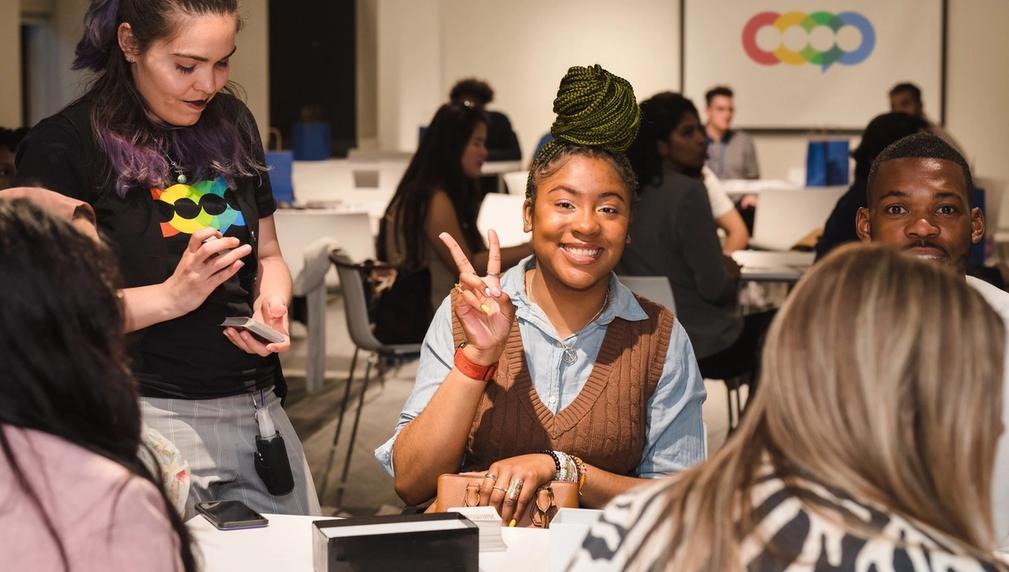Helping College Graduates Overcome Underemployment
Founded in 2014, COOP Careers is dedicated to providing first-generation and low-income college graduates with the skills and connections they need for the careers they deserve. Each year, over 1 million students earn a bachelor’s degree – yet four years later, more than half are unemployed or underemployed in roles that don’t require one. COOP bridges this gap through a tuition-free fellowship that equipes graduates with the technical training, peer support, and social capital necessary for long-term success.

What is the primary issue area that your application will impact?
Access to tech and creative industry employment
In which areas of Los Angeles will you be directly working?
County of Los Angeles (select only if your project has a countywide benefit) City of Los Angeles (select only if your project has a citywide benefit)
In what stage of innovation is this project, program, or initiative?
Expand existing project, program, or initiative (expanding and continuing ongoing, successful work)
What is your understanding of the issue that you are seeking to address?
Over half of graduates from 7 LA-area CSUs earn less than a living wage 2 years after graduation (CalStatePays). A decade later, nearly 1 in 4 do not meet the income threshold needed for a single adult to live in Los Angeles. A 2024 Strada Education study found that 4 years post-grad, first-gen grads are 21% more likely than their peers to be underemployed; for low-income grads, it's 31%.
A key driver of this inequity is lack of access to professional networks. Studies have shown that “economic connectedness,” or the degree of interaction between low- and high-income individuals, is the strongest predictor of upward mobility. This network gap has long-term employment and wage implications: graduates whose parents earned a bachelor’s degree earn 36% more than those from first-generation households, and their median household wealth is 61% higher.
While higher education and training programs have expanded, access to professional networks has not. COOP addresses that gap directly.
Describe the project, program, or initiative this grant will support to address the issue.
California’s economic promise is increasingly out of reach for first-gen and low-income college graduates. COOP helps solve this problem through its fellowship program. For 16 weeks (200 hours), peer cohorts of 16-18 motivated grads learn technical skills, meet potential employers, and build community to jumpstart upwardly mobile careers. The curriculum introduces participants to hard skills (e.g., SQL, Tableau) and soft skills (e.g., time management, communication) necessary for career success. Four near-peer alumni lead each cohort, teaching the curriculum and serving as mentors. These alumni “Captains” are backed by a social work team that provides wraparound support. Our Partnerships team connects COOPers to full-time, upwardly mobile careers through meaningful relationships with employers.
Unlike most workforce programs that intervene before graduation, COOP works in real time – after college and amidst underemployment. This allows us to meet participants at a moment of urgency and high motivation, when our support is most impactful. A key differentiator is our alumni-led structure, in which near-peer Captains provide guidance and model success. Most job placements occur through alumni referrals, creating a self-reinforcing cycle of leadership and opportunity.
By building community, strengthening technical skills, and addressing life barriers, COOP helps LA’s emerging workforce earn living wages and move toward long-term economic security.
Describe how Los Angeles County will be different if your work is successful.
In the near-term, our targets for our 2025 and 2026 LA cohorts and alumni will be consistent with their predecessors: 85% program completion and 70% of alumni fully employed within 12 months, earning at least $50,000 in year one.
To achieve our mission in the long term, 2025 marks the start of three new initiatives: 1) COOP is partnering with bipartisan lobbying firm ArentFox Schiff to position our fellowship as a high-ROI public investment. We support legislation like the Bipartisan Workforce Pell Act and are working to amplify alumni voices in federal policymaking. 2) We’ve launched a national randomized controlled trial with MDRC to evaluate our impact on jobs and earnings. 3) We’re refining our fellowship to provide extended coaching, alumni support, and industry exposure, ensuring more fellows achieve full employment within a year. These three priorities reflect COOP’s commitment to equity, rigor, and continuous improvement as we expand both our reach and our influence.
Approximately how many people will be impacted by this project, program, or initiative?
Direct Impact: 450
Indirect Impact: 2,000